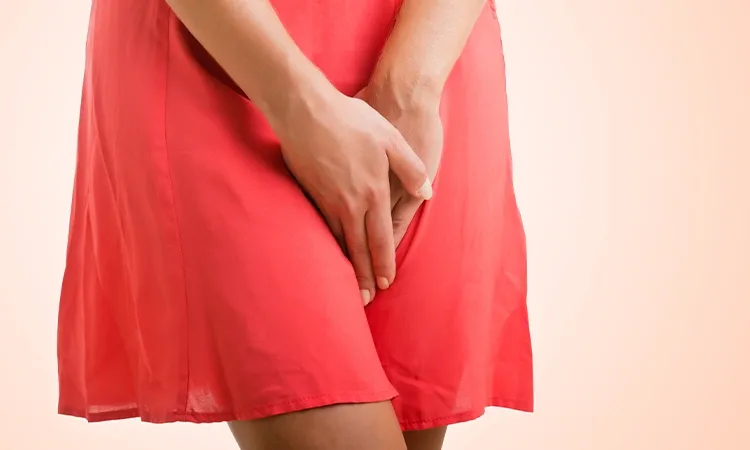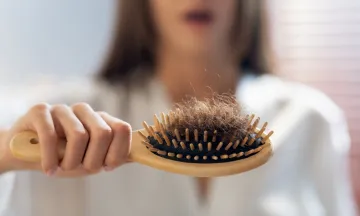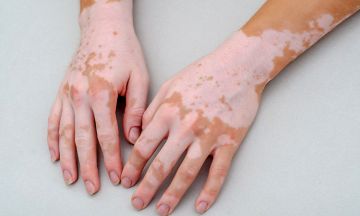Homeopathic solution for urinary incontinence
Urinary incontinence (UI) is the accidental release of urine, which can affect both men and women. Symptoms of UI may differ from person to person and the treatment options range from medications to surgery. Read to find its homeopathic solution.
We all have been in situations like sitting in a meeting for quite a long time, travelling to a remote area in a bus, last moment exam pressure and stress – one thing which is common in all the situations is that you want to hit “pause” to pee while being busy in specific tasks.
Whatever the reason, we’ve all held it in. But how long is too long, are there any health risks? Yes! Holding urine for long in bladder is giving direct invitation to disorder called as “Urinary Incontinence”.
What is Urinary Incontinence?
During the day, most people need to urinate about every three to four hours. Just how long you can comfortably hold your pee differs for everyone. If you aren’t staying hydrated, or if you’re losing fluids through perspiration, you may be able to hold in your urine for quite some time.
At night, most people under age 50 are able to hold urine for about eight hours. As you get older, though, you may find yourself getting up to make two to four bathroom trips. But, sometimes, your bladder may start overreacting, despite of your young age and gender, and you may urge to pee often. Sometimes, waiting to go is unavoidable and that’s okay. But, if you’re feeling pain or discomfort, you get an overwhelming urge to cross your legs to keep from peeing, or feel intense pain in the lower back or abdomen – there is something serious; which is called as Urinary incontinence.
High incidences are seen in women as compared to males. There are different types of incontinence like stress incontinence, urge incontinence, overflow incontinence, functional incontinence and mixed incontinence.
Types of Urinary Incontinence
-
Stress incontinence
is when urine leaks because of sudden pressure on your lower stomach muscles, such as when you cough, sneeze, laugh, rise from a chair, lift something, or exercise. Stress incontinence usually occurs when the pelvic muscles are weakened, sometimes by childbirth, or by prostate or other pelvic surgery. Stress incontinence is common in women. -
Urge incontinence
is when the need to urinate comes on too fast - before you can get to a toilet. Your body may only give you a warning of a few seconds or minutes before you urinate. Urge incontinence is most common in the elderly and may be a sign of an infection in the kidneys or bladder. -
Overflow incontinence
is when you have a constant dribbling of urine. It’s caused by an overfilled bladder. You may feel like you can’t empty your bladder all the way and you may strain when urinating. This often occurs in men and can be caused by something blocking the urinary flow, such as an enlarged prostate gland or tumour. Diabetes or certain medicines may also cause the problem. -
Functional incontinence
occurs when you have normal urine control but have trouble getting to the bathroom in time because of arthritis or other diseases that make it hard to move around. -
Mixed incontinence
occurs when you have more than one of the above types of incontinence.
Causes of Urinary Incontinence
Urinary incontinence can be caused by different medical conditions including weak pelvic muscles, urinary tract infections (UTI), diabetes and constipation. Some other common causes of urinary incontinence include the following:
- Alcohol
- Caffeine
- Decaffeinated tea and coffee
- Carbonated drinks
- Artificial sweeteners
- Corn syrup
- Foods that are high in spice, sugar or acid, especially citrus fruits
- Heart and blood pressure medications, sedatives, and muscle relaxants
- Large doses of vitamins B or C
If not treated, urinary incontinence can lead to recurrent urinary tract infection. It can also hamper the patient psychologically. It can affect the personal as well as professional life of an individual.
Homeopathy Treatment for Urinary Incontinence
There are several treatments available for Urinary Incontinence. Bladder training is the main line of treatment in alternative medicine. It consists of training the bladder to hold the urine at least 10 min after the urge. In cases which do not respond well to behavioral training and exercises, medications and surgical procedures are prescribed in such cases.
Unlike conventional treatment, homeopathic treatment for Urinary Incontinence is known to treat the root cause of the disease without any side-effects. Homeopathy also takes care of the psychological damages caused by this condition.
Self-help
To avoid embarrassing Urinary Incontinence problem, answer nature's call. You can delay on occasion, but it should not be your norm otherwise it can have some significant side effects later on down the road.
There are certain precautions which you can keep in mind to stay away from UI:
- Maintain a healthy weight
- Practice pelvic floor exercises, especially during pregnancy
- Avoid bladder irritants, such as caffeine and acidic foods
- Eat more fiber, which can prevent constipation, a cause of urinary incontinence.



